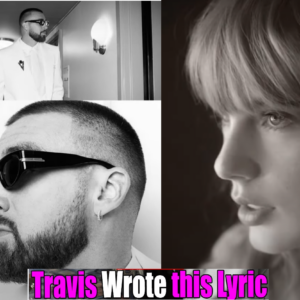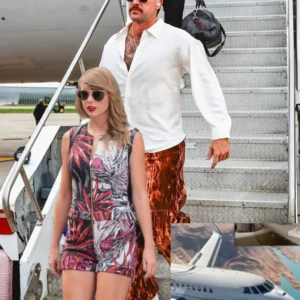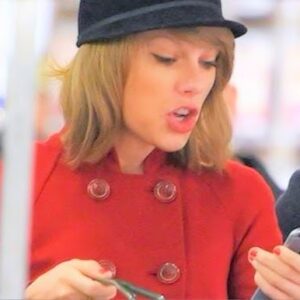
Call it a gold rush: Taylor Swift is adding billions to the U.S. economy.
Swift’s record-shattering Eras Tour is set to be the most lucrative concert run in American history. But the massive production not only provided a jolt of money to sold-out stadiums — it also infused the American economy with a trickle-down flow of cash.
Now, as the show heads to movie theaters this weekend, millions more will experience — and shell out cold, hard cash for — a moment with Swift.
As she hits the silver screen, here’s a look at The Economy (Taylor’s Version).
The biggest windfall is headed straight to Swift, who stands to make as much as $4.1 billion from the Eras Tour, according to estimates from Peter Cohan, an associate professor of management at Babson College.
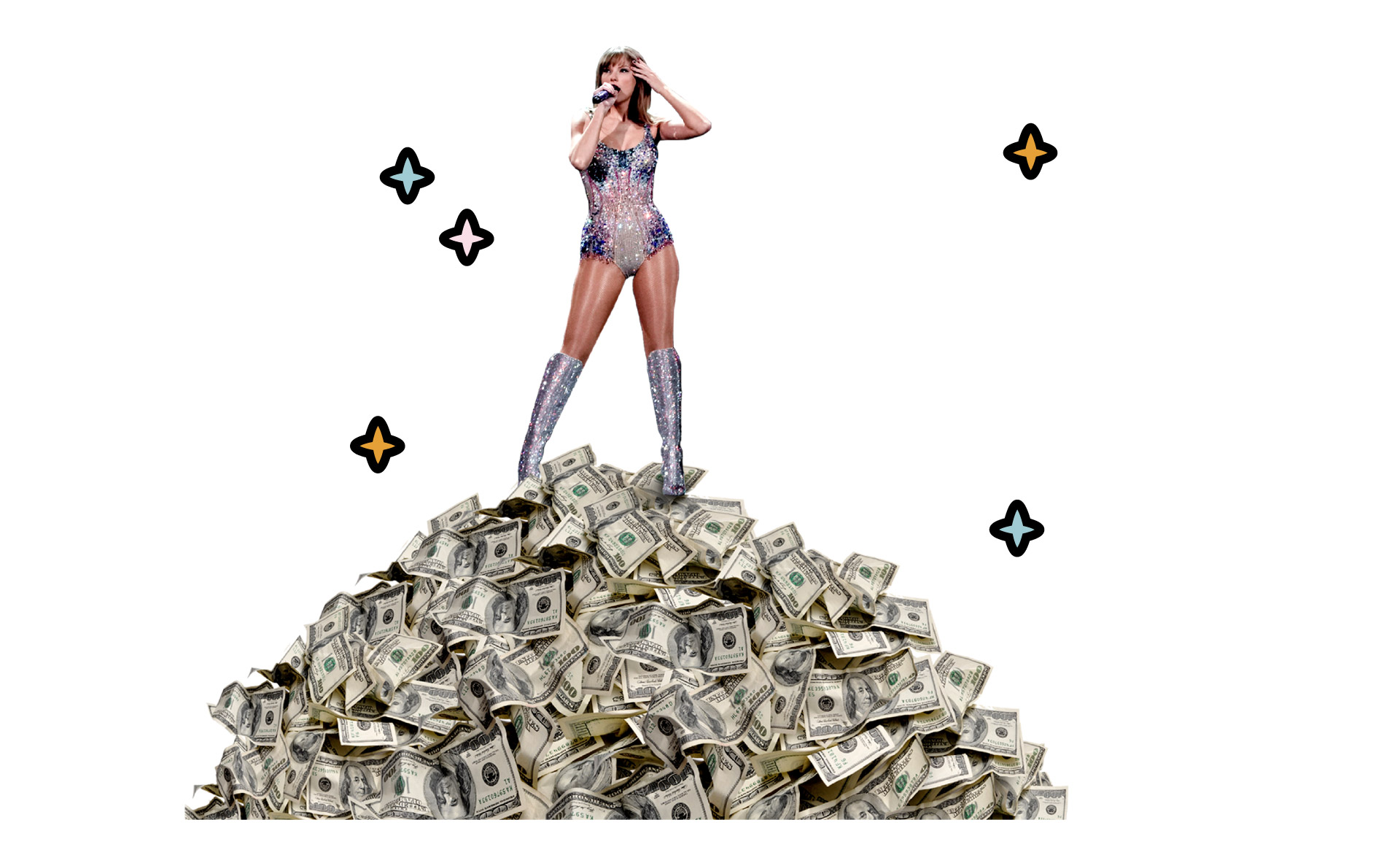
$4.1
billion
Estimated personal
earnings from
the Eras Tour
That’s assuming the pop star ends up keeping the standard artist’s share of roughly 85 percent of her tour’s revenue, with average ticket prices of $456. Swift’s earnings would be the most from a single tour for any musical act to date — and more than the yearly economic output of 42 countries, including Liberia, which has more than 5 million people.
But the impact of the Eras Tour extends far beyond what Swift takes home. In one of the few efforts to assess spending by concertgoers, software company QuestionPro quizzed 592 Swifties who responded to an opt-in online survey. Based on their answers and average concert attendance, the company estimates that Swift’s fans spent about $93 million per show — yes, on tickets, but also on merchandise, travel, hotels, food and outfits.
Add all that up, and by the end of the U.S. tour, you’ve got a $5.7 billion boost to the country’s economy. That’s enough to give $440 to each person in Swift’s home state of Pennsylvania. Or almost enough to send every American a $20 bill.
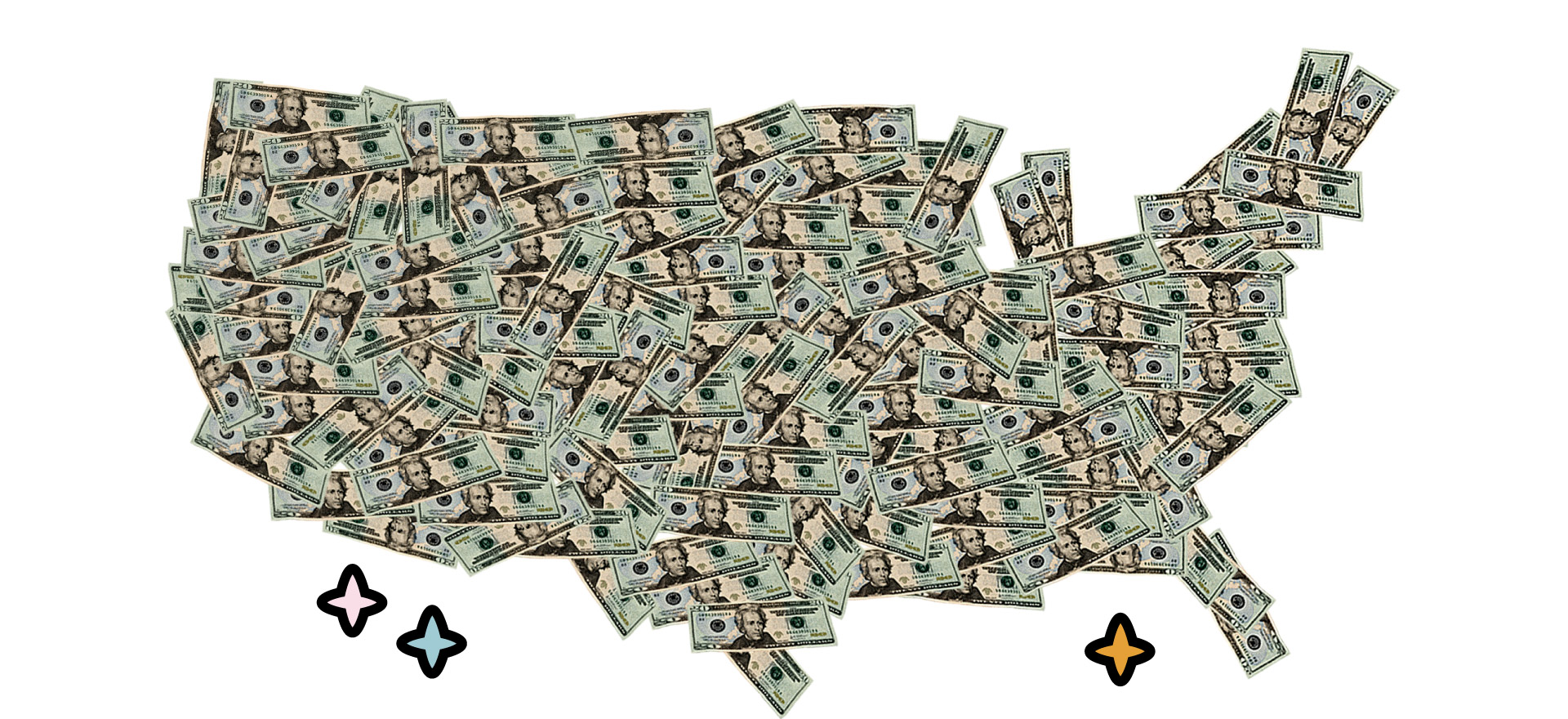
(Technically $17.10 per person)
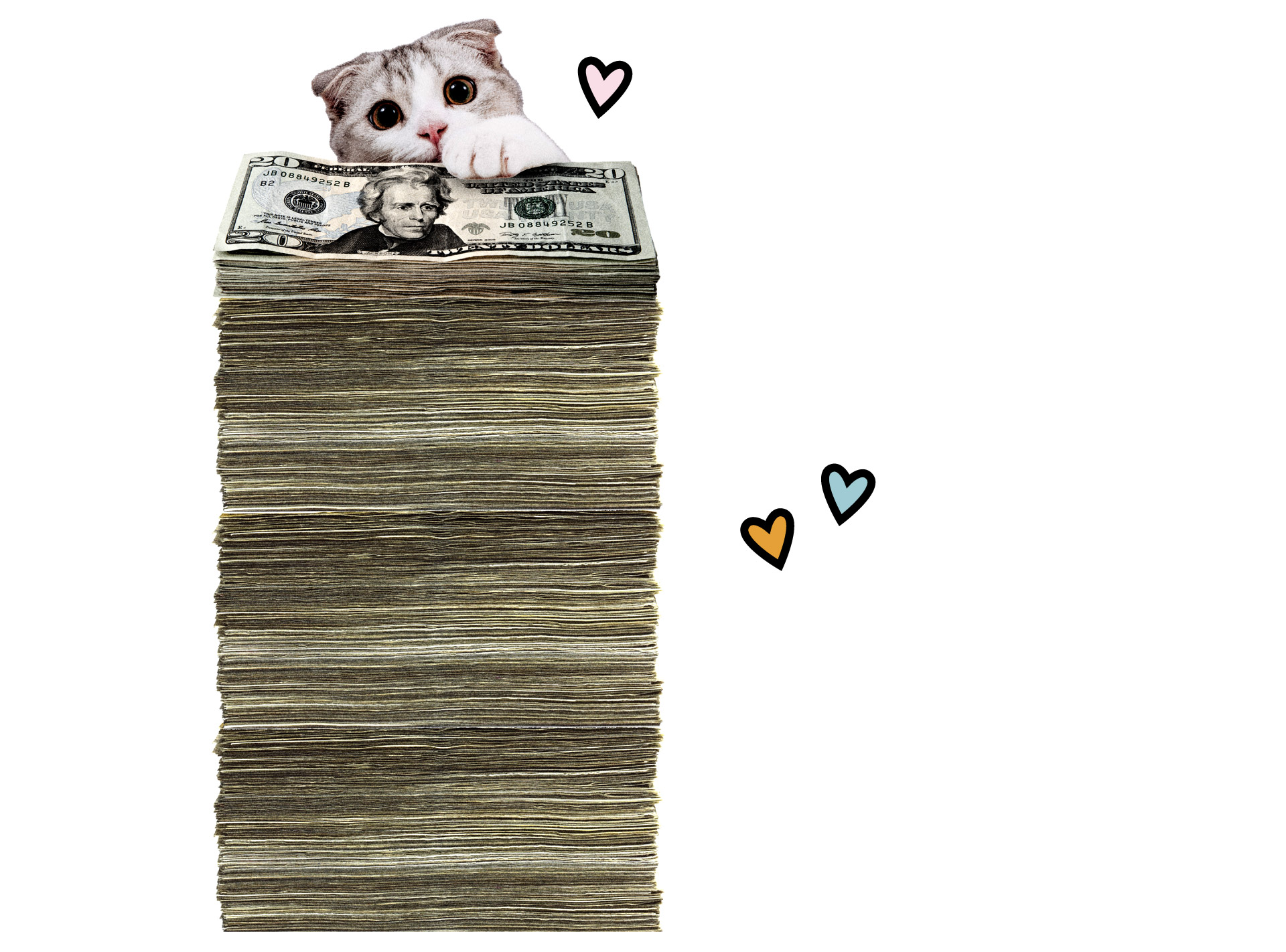
(Sorry, we don’t know
how many cats personally
received a $20 bill from Taylor. But it’s enough
to give each of her three cats $1.9 billion.)
The mania began months before the March kickoff of the Eras Tour. Presale tickets went on sale in November — sending millions of fans into a frenzy and causing Ticketmaster to crash. A class-action lawsuit and a congressional inquiry followed, as did the ire of many Swifties.
Tickets, which started at $49, sold for many multiples of their face value on resale sites like SeatGeek.
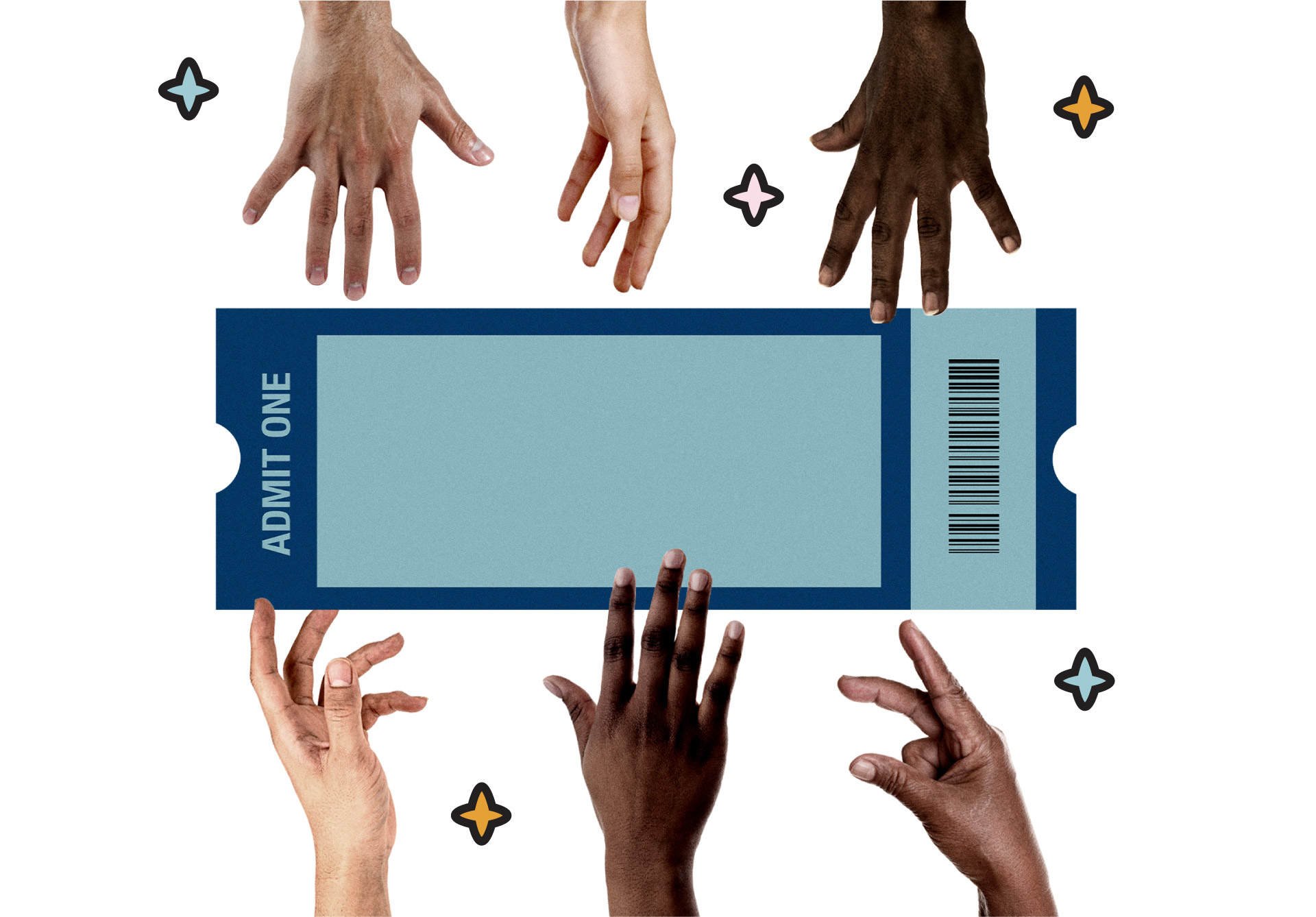
$1,611
Average ticket resale
price on SeatGeek
That burst of spending has revived the entertainment industry after a years-long pandemic slump.
“Swift and her ‘Eras’ tour have redefined entertainment economics,” said Chris Leyden, director of growth marketing at SeatGeek.
The tour’s economic boost spread far past the walls of Swift’s stadium venues, as fans traveled from near and far to any show they could get their hands on. The Federal Reserve Bank of Philadelphia even put the Swift effect in a report — saying concertgoers provided a sizable boost to hotel revenue in May.
Hotels, restaurants and shops around the country felt the upswing, with millions of dollars flowing into the 20 U.S. cities Swift visited this summer. Cincinnati estimated that it would see about $48 million in additional economic impact, according to Visit Cincy and the Cincinnati Regional Chamber’s Center for Research and Data.
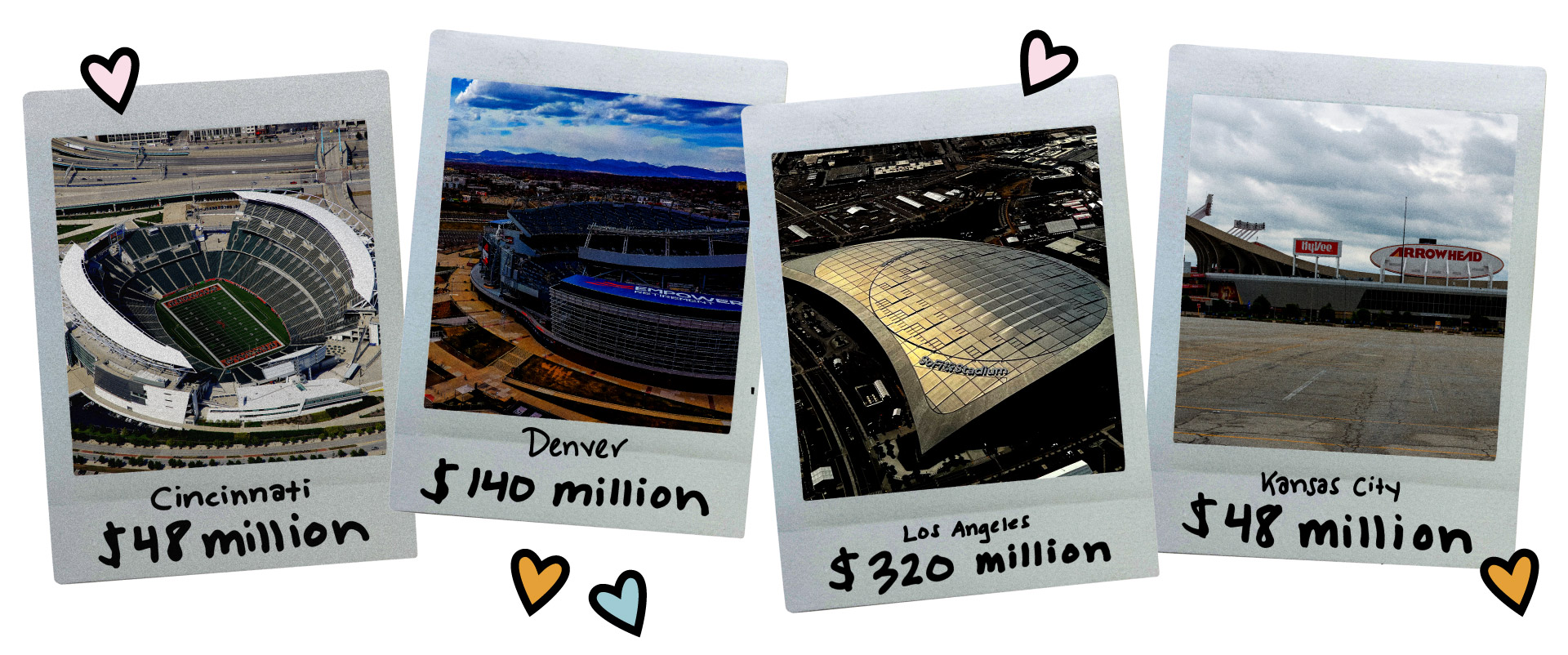
In Los Angeles, where Swift performed six shows, the California Center for Jobs and the Economy predicted a $320 million boost to the county. Kansas City tourism organization Visit KC said the region got an estimated $48 million impact from the tour’s July stop. The Common Sense Institute, which studies the state of Colorado’s economy, predicted the boom from Swift’s Denver performances would add up to $140 million statewide.
“The [Eras Tour] was a shot in the arm to a part of the regional economy that’s really been lagging,” said Mike Kahoe, chief economist for the California center. “It brought some much-needed dollars to the tourism industry.”
Hotel analytics group STR calculated tour cities produced a $208 million bump in hotel room revenue, over and above normal seasonal levels.

$208
million
Estimated
additional
room revenue
In Seattle, Swift set a record for single-day revenue for downtown hotels — notching $7.4 million, about $2 million more than the record set during a Major League Baseball All-Star Game earlier the same month, according to Visit Seattle and STR.
“To put the impact into context, $208 million is basically the combined room revenue generated in New York City and Philadelphia in one week,” STR senior research analyst M. Brian Riley wrote. And that’s just for the actual nights of the tour, not including fans who arrived early or stayed longer.
Swift’s fans want to embody their favorite Era — and that means splurging on elaborate outfits and costumes.
“Is there anyone here who put a lot of work, thought and preparation into lyric memorization and/or what you were going to wear?” Swift asked the crowd to loud cheers at a Los Angeles show in August.
A core accessory for any Swiftie is a few — or a few dozen — friendship bracelets to grace their wrists and to trade at shows. The jewelry, inspired by a lyric in Swift’s song “You’re On Your Own Kid,” is often handmade or bought online and boasts popular Swift lyrics.
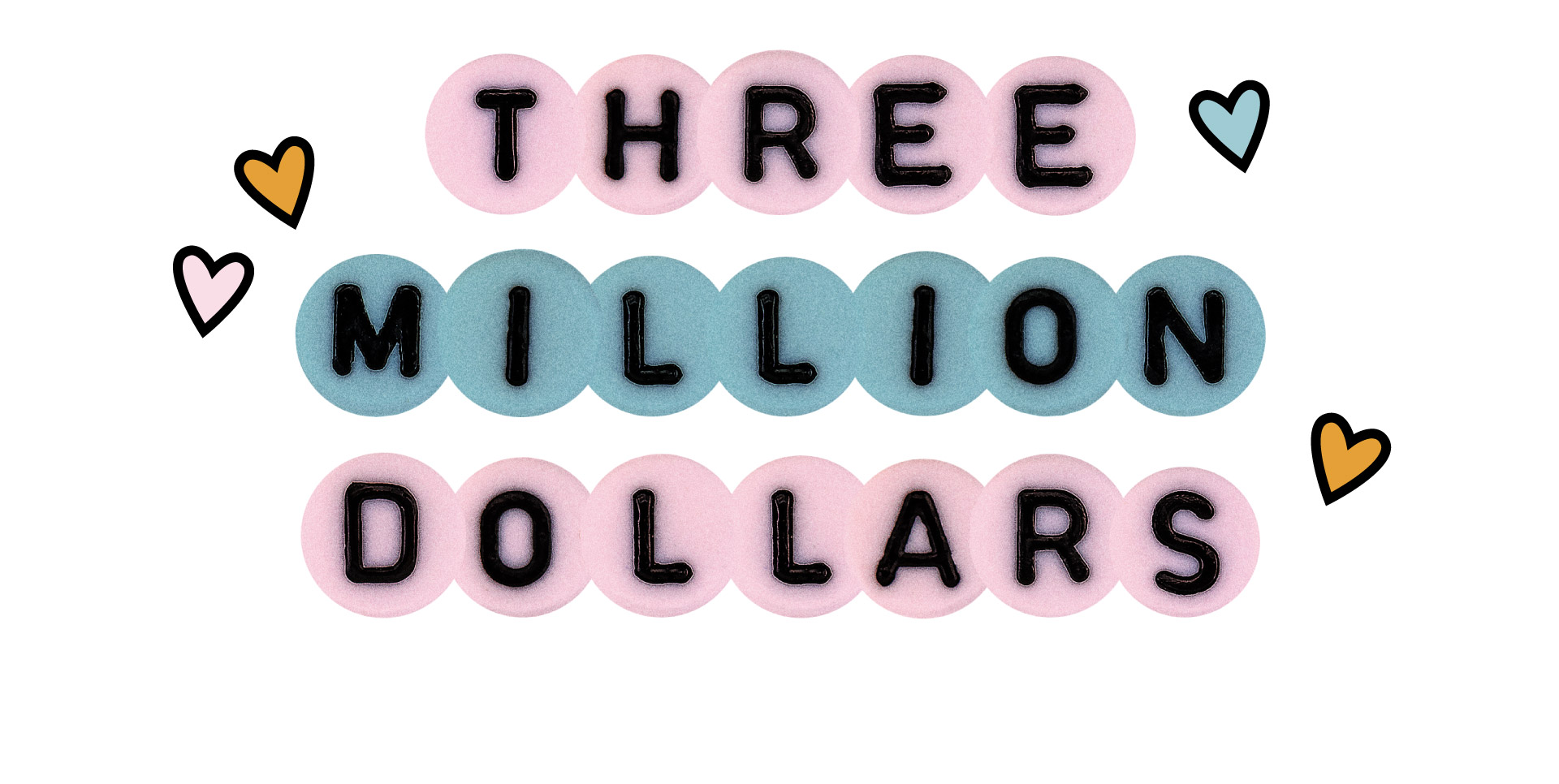
in friendship bracelets sold on Etsy
between April and August
One Etsy seller, Kara White, started making the bracelets with her mom earlier this year, when the tour began. They got orders for 1,500 bracelets in a single day as fans prepared for the Los Angeles shows. White and her mom have made about $15,000 this year selling bracelets.
“It just shows how much she makes her fans go crazy,” White said.
Coveted tour merchandise that were hard to nab had fans turning to internet resale sites. One of the most popular items: a $65 blue crewneck with the Eras Tour logo.
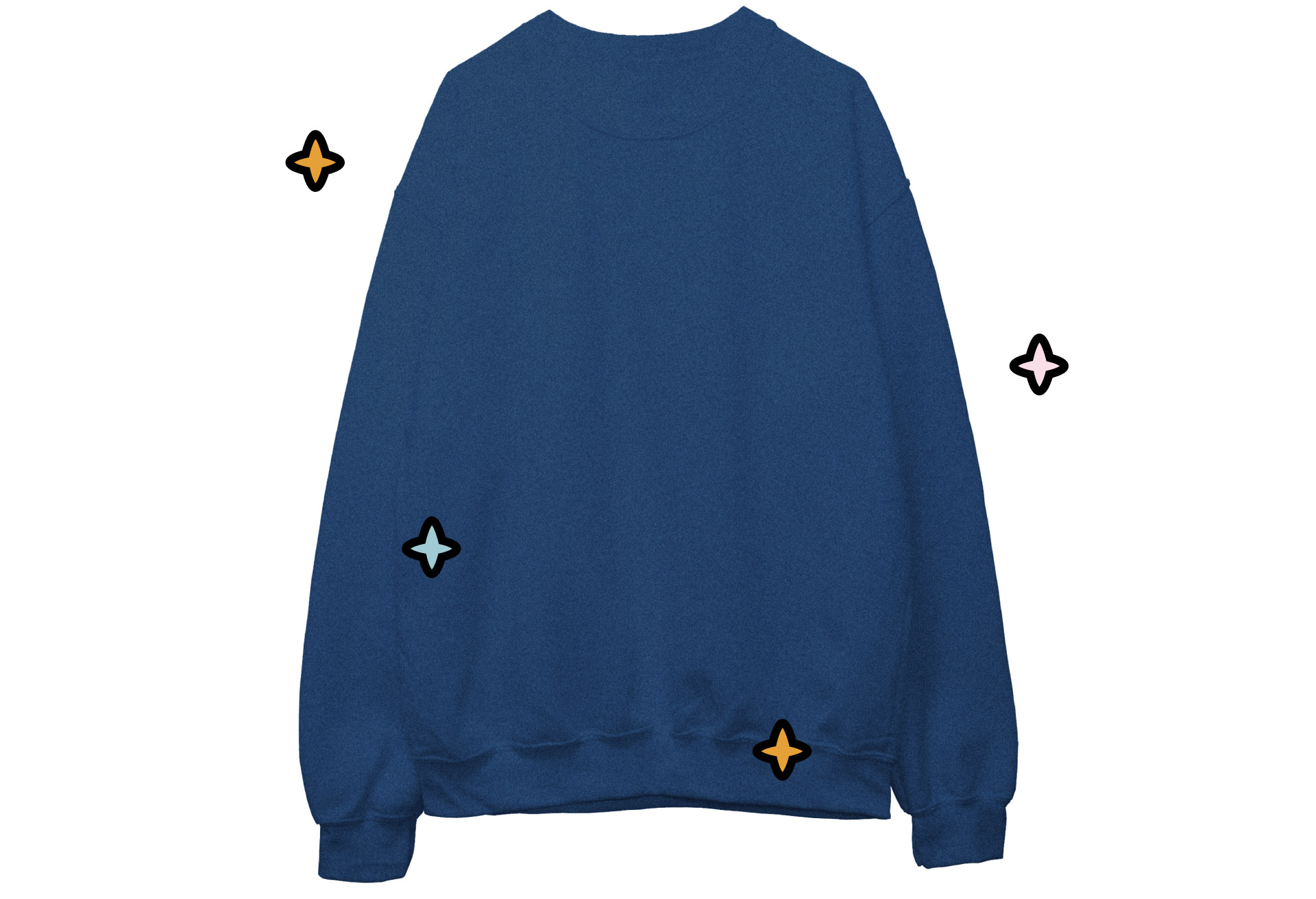
1,600%
increase
in blue Eras
crewnecks sold
on eBay from
March to July
At the venues, merch lines were long — inside and at trucks parked outside. Justin Paul, a DJ, producer and creative director who teaches music business courses at UCLA Extension, came up with a conservative estimate — $864,000 for each show — for Swift’s merch sales inside venues by using the number of people at each show and an average of how much concertgoers typically spend on merch. Still, Swift is a special case.
News
OH SO… SHOCKING: Blind Item reveals Travis Kelce was chosen not because of his ability but because of Taylor Swift’s INFLUENCE
Blind Item Reveals Travis Kelce Allegedly Only Chosen To Host Show Because Of Taylor Swift Travis Kelce is taking a break from the football field to host…
NEW VIDEO: Caitlin Clark Awkwardly Played On Her Phone After She Was Left Out Of Angel Reese’s WNBA Draft TikTok
VIDEO: Caitlin Clark Awkwardly Played On Her Phone After She Was Left Out Of Angel Reese’s WNBA Draft TikTok Angel Reese and Cameron Brink (Photo via @angelreese10…
How wonderful!!! Caitlin Clark becomes women’s all-time leading scorer: Big Ten foe explains why she’s a ‘generational talent’
With the Iowa star making history Thursday night, her Big Ten competition explained to CBS Sports what makes her so special Getty Images Not a single college…
Great: Travis Kelce impresses Taylor Swift with lyrics for 2 songs in the new Album
In an unexpected turn of events, NFL star Travis Kelce has left fans and music enthusiasts buzzing with excitement after it was revealed that he played a…
Wow: SHOWBIZ BILLIONAIRE!!! Taylor Swift bought a private jet for her Eras Tour and also to conveniently date
In order to assist her in her life, Taylor Swift has a fleet of private aircraft. The Falcon 900 has a luxury interior that can accommodate up…
Oh, Oh: Caitlin Clark has had enough of the former NFL star’s rude comments, blocking him on Twitter
Caitlin Clark Has Had Enough Of Former NFL Star’s Rude Comments, Blocks Him On Twitter Caitlin Clark (Photo by Steph Chambers/Getty Images) Caitlin Clark is sick of Antonio Brown….
End of content
No more pages to load


